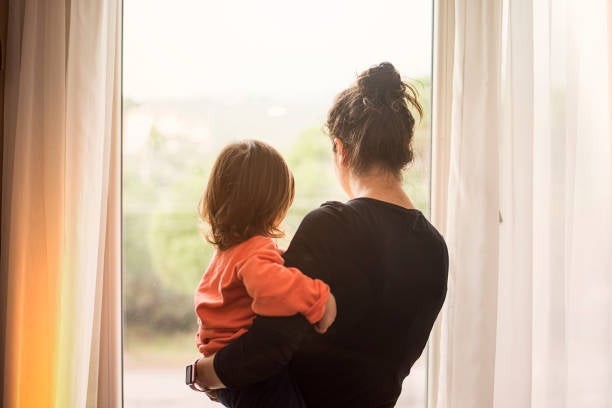Mothers lose landmark case against ‘desperately unfair’ two-child benefit limit
Policy ‘limits the life chances of children’ campaigners say

Your support helps us to tell the story
From reproductive rights to climate change to Big Tech, The Independent is on the ground when the story is developing. Whether it's investigating the financials of Elon Musk's pro-Trump PAC or producing our latest documentary, 'The A Word', which shines a light on the American women fighting for reproductive rights, we know how important it is to parse out the facts from the messaging.
At such a critical moment in US history, we need reporters on the ground. Your donation allows us to keep sending journalists to speak to both sides of the story.
The Independent is trusted by Americans across the entire political spectrum. And unlike many other quality news outlets, we choose not to lock Americans out of our reporting and analysis with paywalls. We believe quality journalism should be available to everyone, paid for by those who can afford it.
Your support makes all the difference.Two campaigners have lost a challenge against the government's "two-child limit" for welfare payments - an austerity measure brought in by former Tory chancellor George Osborne and one which critics have described as "desperately unfair".
The case, heard in the Supreme Court, was brought by two single-parent mothers and supported by the Children Poverty Action Group.
Both mothers had argued that the policy breached both parents’ and children's human rights. But the case was dismissed by the highest court in the land.
Supreme Court President Lord Reed said on Friday: "The court concludes that the two-child limit has an objective and reasonable justification, notwithstanding its greater impact on women.
The rule, which came into force in April 2017, restricts Child Tax Credit and Universal Credit to the first two children in a family, with a few exceptions.
At a hearing in October last year, a panel of seven Supreme Court justices were asked to decide whether the limit is compatible with human rights laws - including the rights to respect for private and family life, to found a family and to freedom from discrimination - as the policy disproportionately affects women.
Giving the lead ruling on Friday, the court's president Lord Reed dismissed the case, upholding previous decisions of the High Court and Court of Appeal.
The judges concluded that while the policy does have a greater impact on women - who make up 90 per cent of single-parent families - there is an "objective and reasonable justification" for that effect, namely to "protect the economic wellbeing of the country".
They also concluded that any impact of the policy on children in families with more than one sibling is "justifiable".
The families who brought the challenge have both been affected by the limit, as they have children who were born after the new rule came into force under the Welfare Reform and Work Act on 6 April 2017.
Carla Clarke, head of strategic litigation at CPAG, said: "This is a hugely disappointing judgment which fails to give any meaningful recognition to the reality of the policy on the ground and its desperately unfair impact on children.
"We know the two-child limit increases child poverty, including child poverty in working households, and forces women to choose between an abortion and raising their families without enough to live on.
"It limits the life chances of children by reducing them from a person to a number.
"It is well established that the ultimate safeguard against discrimination, particularly on contentious issues, lies with our courts. That is simply not in evidence in this judgment.
"We continue to believe that the policy is unlawful and, together with our clients, are considering taking the matter to the European Court of Human Rights so that no child is left out of the social security safety net purely because of their birth order."
Carla Clarke, also of Child Poverty Action Group, said: “This is a hugely disappointing judgment which fails to give any meaningful recognition to the reality of the policy on the ground and its desperately unfair impact on children.
“We know the two-child limit increases child poverty, including child poverty in working households, and forces women to choose between an abortion and raising their families without enough to live on.
“It limits the life chances of children by reducing them from a person to a number.”
Additional reporting by Press Association
Join our commenting forum
Join thought-provoking conversations, follow other Independent readers and see their replies
Comments